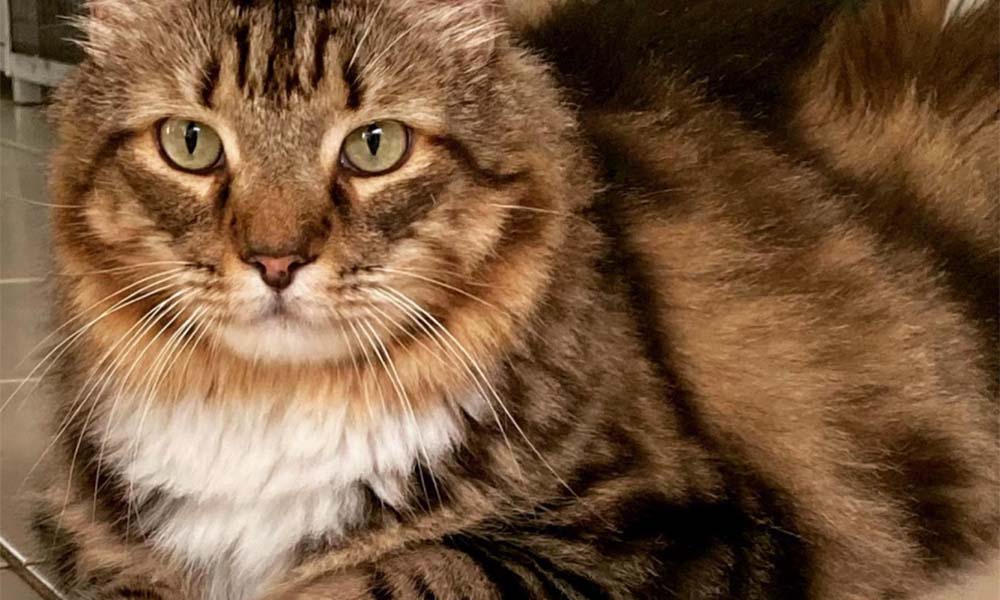Preparing for cat boarding is crucial to ensure your feline friend has a stress-free and comfortable experience.
Using a professional cat boarding facility offers numerous benefits, including expert care, a safe environment, and peace of mind for you. This blog will explore essential tips to make boarding your cat a smooth and enjoyable process.
Let’s understand the exciting world of cat boarding!
Research the Facility
Thoroughly researching the cat boarding facility is essential. A reputable and well-reviewed cattery ensures that your cat receives top-notch care and a safe, stimulating environment. By choosing a suitable facility, you can rest assured that your cat will be in good hands when boarding your cat.
Steps to Take
- Ask Your Vet for Recommendations: Your vet can provide valuable insights and recommend trustworthy cat boarding facilities.
- Visit the Facility for a Guided Tour: Seeing the cattery firsthand allows you to assess cleanliness, safety, and overall environment. Cat Castle provides a stress-free environment with no dogs, ensuring a quieter stay for your cat.
- Create a Checklist: List things to look for and questions to ask the staff, such as feeding routines, exercise schedules, and emergency protocols.
Cat Carrier and Car Familiarity
Familiarising your cat with the carrier and car is vital for a smooth transition to the cat boarding facility. Many cats associate carriers and car rides with vet visits, which can be stressful. Changing this perception is critical to successfully boarding your cat.
Tips for Making Car Rides a Positive Experience
- Take Short Drives: Gradually increase the duration of car rides to get your cat used to the motion and environment.
- Provide Treats and Cuddles: Reward your cat with treats and affection after each ride to create positive associations.
Book a Trial Stay
A trial stay at the cat boarding facility can significantly ease your cat’s transition. It helps both you and your cat become familiar with the new environment and the routine, making the process of boarding your cat much smoother.
Planning the Trial Stay
- Book a Short Stay: Arrange for your cat to stay at the cattery for a night or two.
- Observe Your Cat’s Behaviour: Monitor how well your cat adapts to the new surroundings, the staff, and other cats. This trial run can reveal any adjustments needed before a longer stay.
Bring What Your Cat Needs
When boarding your cat, packing familiar items can significantly improve its comfort. Bringing along items your cat loves can help reduce stress and make the transition smoother.
List of Essentials to Pack
- Favourite Toys: Familiar toys provide comfort and entertainment, keeping your cat engaged and happy.
- Bedding that Smells Like Home: Bringing your cat’s bedding or a blanket that smells like home can provide security and comfort.
- Treats: Pack your cat’s favourite treats to maintain some of their usual routines and reward them during their stay.
These items can help your cat feel more at ease in a new environment, making the experience of boarding your cat much more pleasant.
Communicating Needs
Clear communication with the boarding facility staff is crucial to ensure your cat’s comfort. Inform the staff about your cat’s specific needs and daily routines.
Whether it’s a particular feeding schedule, preferred type of play, or any quirks your cat has, sharing this information can help the staff provide personalised care.
Importance of Clear Communication:
- Ensures that the staff understands your cat’s unique requirements.
- Helps in maintaining your cat’s routine, reducing their anxiety.
- Facilitates better care and attention, making your cat’s stay more comfortable.
By clearly communicating your cat’s needs, you ensure they receive the best possible care while boarding.
Diet and Health
When boarding your cat, it’s essential to keep their diet consistent to avoid any digestive issues. A sudden change in diet can upset your cat’s stomach, causing unnecessary stress.
Tips for Diet Consistency
- Bring Enough of Your Cat’s Regular Food: Ensure you pack enough food to last the entire stay. This helps maintain your cat’s regular eating habits.
- Inform the Staff of Any Dietary Requirements: If your cat has special dietary needs, make sure the staff is aware and equipped to handle them.
Health Requirements
Before boarding your cat, make sure their vaccinations are up to date. Most boarding facilities require proof of vaccination to ensure the health and safety of all cats. Additionally, apply flea and worm treatments before the stay.
Key Health Preparations
- Ensure vaccinations are current.
- Apply flea and worm treatments.
- Provide detailed instructions for any medications your cat needs.
By packing familiar items, maintaining a consistent diet, and communicating clearly with the staff, you can ensure that boarding your cat is a positive and stress-free experience for both you and your feline friend.
Conclusion
Preparing for boarding your cat involves thorough research, familiarising them with travel, packing essentials, and maintaining diet consistency. These steps ensure a smooth cat boarding experience. Visit The Cat Castle for a tour and consultation to see how we can make boarding your cat a pleasant experience.
Remember, cats live in the NOW. If you are away for more than three days, they have no comprehension of time. So whether it’s four days or four weeks, it’s the same to them—no need to feel guilty.
Start preparing now to make your cat’s stay stress-free. Visit The Cat Castle for a tour and consultation to see how we can make boarding your cat a pleasant experience.
Frequently Asked Questions
Bring your cat’s vaccination records, a secure carrier, their regular food, and familiar items like toys or bedding.
Familiarise your cat with their carrier and car rides. Book a trial stay to assess their comfort in the new environment.
Ensure your cat’s vaccinations are up to date and apply flea and worm treatments. Provide detailed instructions for any medications your cat needs.





